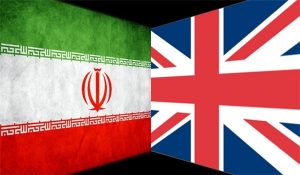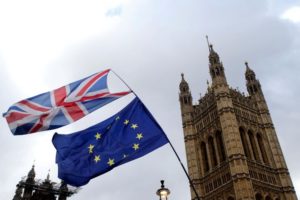The British Conservative Government’s Political Elite, and the European Union: Safeguarding British Interests (With Special Reference to: 2010 – 2016)
In respect of the E.E.C., Britain’s formal application for membership was made by MacMillan in August 1961. By December 1962 the negotiations for British membership of the E.E.C. were making progress. However, in mid-December, at a meeting in Rambouillet, just before the Nassau Conference of MacMillan and Kennedy, the French President, de Gaulle, had made his position clear by telling MacMillan that he did not consider Britain to be European, and that he would veto British application to join the Community. MacMillan was afraid that the opposition in Washington to Britain obtaining Polaris and to the special nuclear relationship with Britain would be strengthened by such a set-back and force Kennedy to retreat from selling Polaris, and from the nuclear relationship in general; so he did not reveal the news in Nassau.
Nevertheless, against the background of the continuing post-war economic problems, and the frosty relationship between Britain and the U.S. after the Suez Canal crisis, MacMillan managed to re-establish the friendly relationship that had existed between Churchill and Truman and bring about the ‘special relationship’ that Churchill always wanted Britain to have with the United States. Consequently, MacMillan even managed to maintain an independent nuclear deterrent for Britain, which thus remained a member of the ‘nuclear club’. As has been pointed out, MacMillan’s policy is still operating today between the U.K. and the U.S.. Thus MacMillan secured Britain’s defence and managed to bring the old Empire to a New Commonwealth, and prevented the ex-colonies from falling into the Communist sphere of influence. As we have said, MacMillan, like Churchill and Eden, believed that Britain was not exclusively European, and that she should maintain her, special link with the Commonwealth, the sterling area and the United States. Additionally, alliance with the United States was fundamental to Britain and her interests and security. However, the difference between MacMillan, Churchill and Eden was that MacMillan did not have Churchillian nostalgia, nor Eden’s overestimation of Britain – especially in the face of her weakened economy and the U.S.S.R./U.S.A.’s superpower status.
MacMillan was realistic and took the middle ground. Moreover, the Suez Crisis was a lesson that MacMillan took notice of; in other words the transatlantic relationship must be based on consultation and trust.
As Britain’s relation with Europe nonetheless, eventually grew closer than at any time before, by being an active member of the EEC, then EU. The third policy of Macmillan, though not during his Premiership, has eventually succeeded. First was the decolonisation and the establishment of the Modern Commonwealth, second the “special relationship” with the USA, and thirdly the entry into the EEC. It could be said that the foundations, laid in 1945-63 stood the test of time, until recently.
Pages: 1 2 3 4 5 6 7 8 9 10 11 12 13 14 15 16 17 18 19 20 21 22



